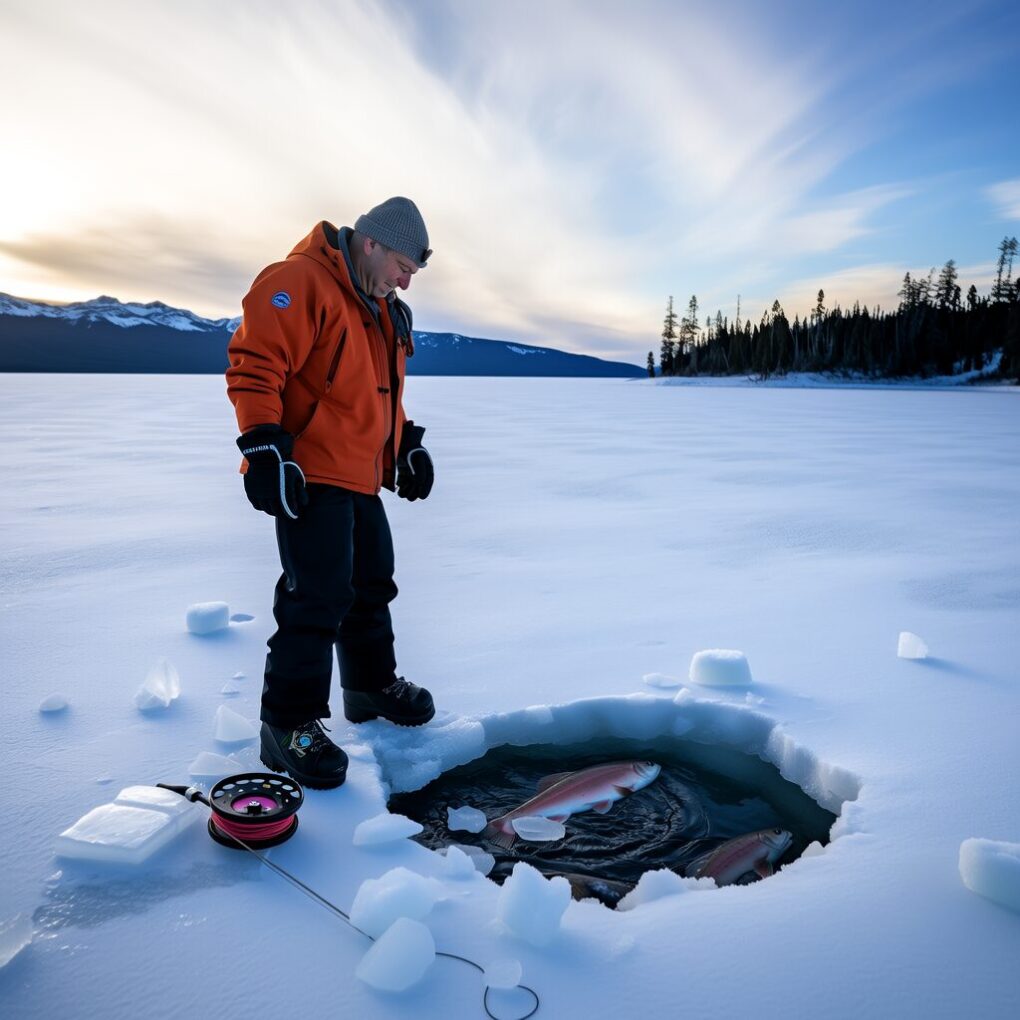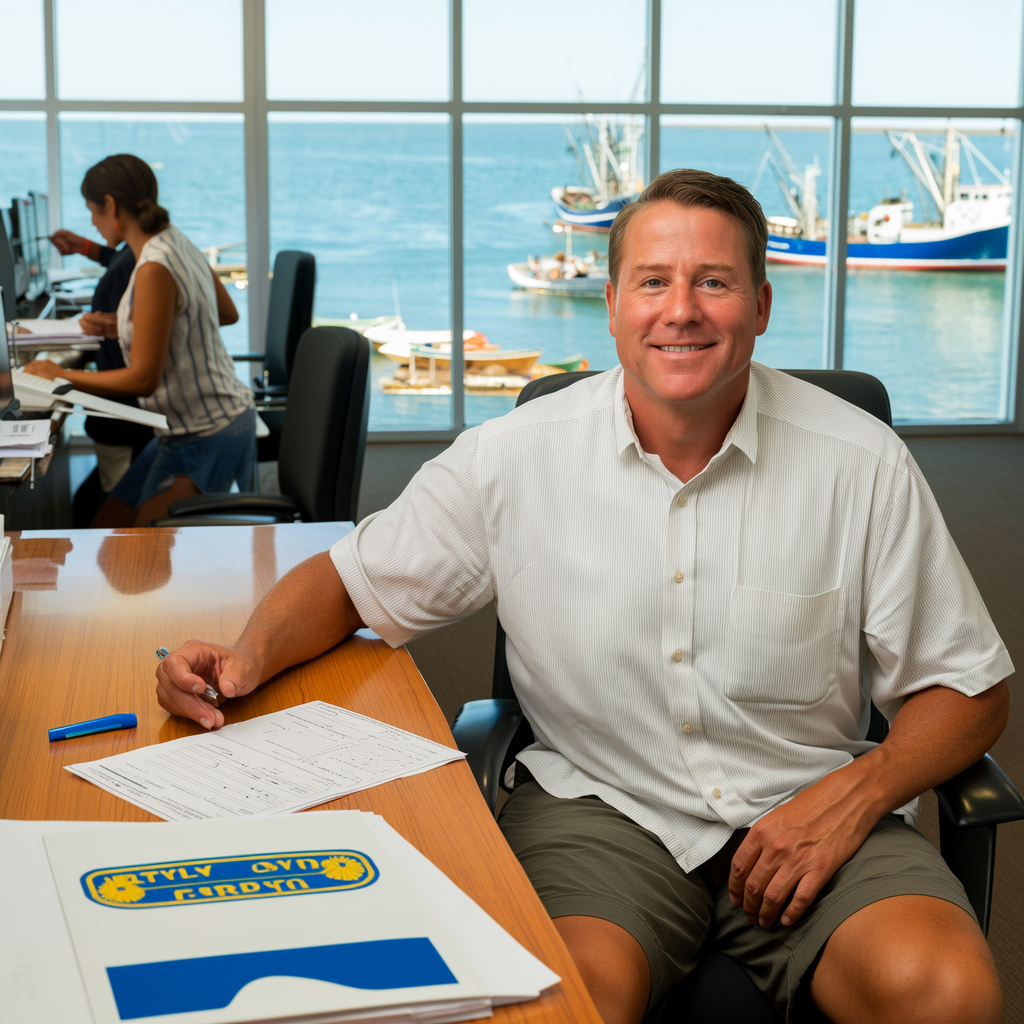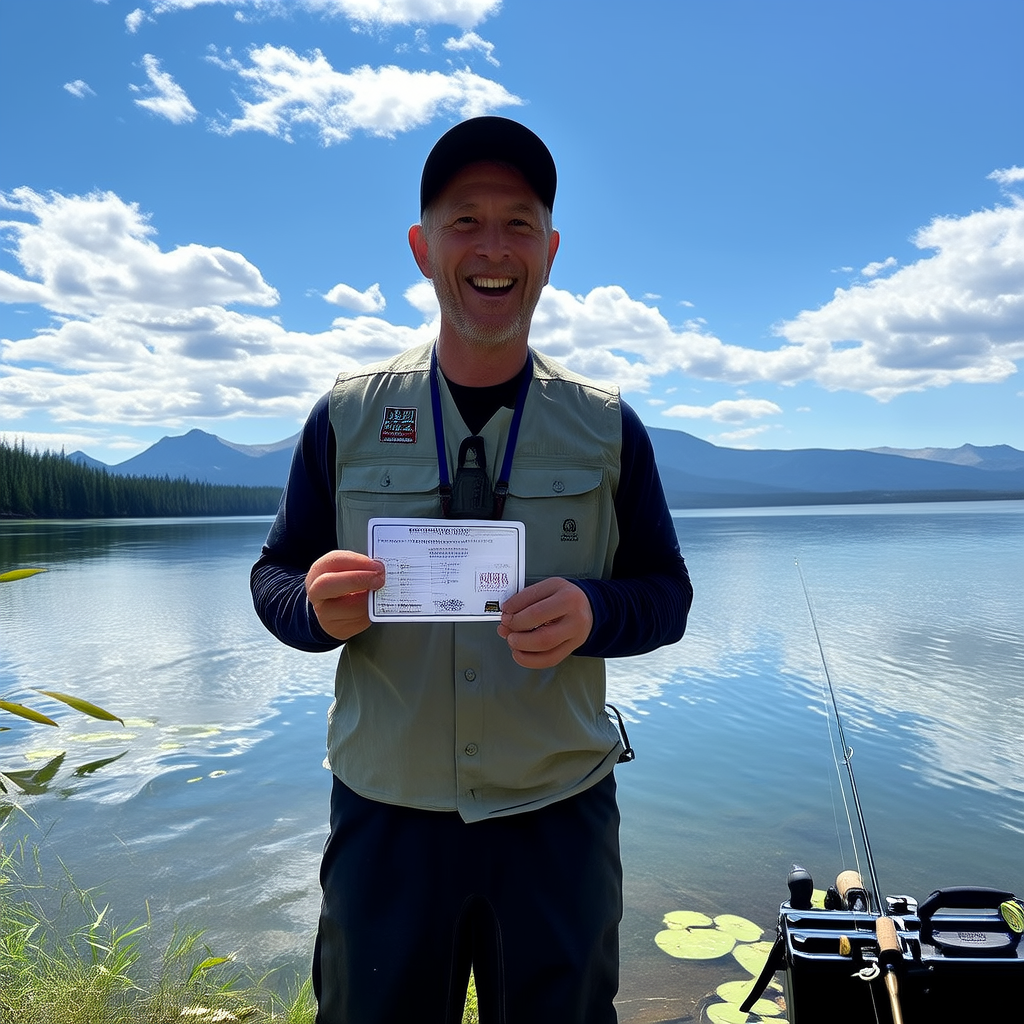Are you a passionate angler who wants to discover the beautiful fishing spots in Wisconsin. Let’s start with the most important thing that you’ll need before you cast your line in the water – a Wisconsin fishing license. This comprehensive guide will cover everything, from how to obtain your fishing license to what types are available and the regulations that you must follow. Let’s get started and learn how to enjoy and be legal while fishing in Wisconsin.
What is a Wisconsin Fishing License (WFL)?
A Wisconsin fishing permit is a permit which allows you to legally fish on the many waterways in this beautiful state. If you are a novice angler or an experienced fisherman, obtaining a license is essential to comply with state regulations as well as contribute to the conservation and protection of fish populations and habitats.
Why do you need a Wisconsin fishing license?
To fish or to not fish? In Wisconsin, it is not a question. All anglers over 16 years old must have a fishing licence before they can cast their lines in the state’s abundant waters. This requirement helps to ensure the sustainability of the fish population and supports the ongoing conservation efforts in Wisconsin.
Types of Wisconsin Fishing Licenses
Wisconsin offers a variety of fishing licenses that cater to the needs of different anglers. Here are the various types of licenses available:
1. Resident fishing license:
This license is valid for residents of Wisconsin. It allows them to fish in all inland rivers and lakes, including the Great Lakes, Mississippi River, and the Great Lakes bordering Wisconsin.
2. Non-Resident fishing license:
This license is for anglers who are visiting Wisconsin from outside of the state. It allows you to fish the same inland waters, rivers and bordering water as the resident license.
3. First-time buyer fishing license:
This license is for you if you have never bought a fishing permit in Wisconsin. This license allows you to enjoy the joy of fishing for a lower cost, encouraging people to take up this favorite pastime.
4. Senior Citizen Fishing License:
Wisconsin residents 65 years old or older may apply for a special discounted license. Senior citizens can enjoy the mesmerizing waters of Wisconsin while also promoting their physical and mental health.
5. Single-day fishing license:
The single-day license is perfect for those who are visiting Wisconsin for just a few days or want to test their luck for one day. Non-residents as well as residents can fish for one day without needing a full year license.
6. Two-day fishing license:
The two-day fishing permit is designed for anglers who are planning a weekend fishing excursion or a short getaway. It offers flexibility for a limited period.
7. 15-Day Fishing Licence:
The 15-day fishing permit is ideal for tourists and those who are spending an extended vacation in Wisconsin. It allows them to explore the abundant fishing spots throughout the state.
How to Get a Wisconsin Fishing License
The process of obtaining a Wisconsin fishing license is simple. Here are the steps you need to take:
1. Determine the type of fishing license you need:
To choose the right license type, you must first determine your fishing requirements and residency status.
2. Online Application:
Applying online via the official Wisconsin Department of Natural Resources site is one of the easiest and most convenient methods to obtain a fishing license. The online application can be accessed 24/7, making it easy for anglers of all ages to obtain their licenses at any time.
3. In-person Application:
You can also apply for a Wisconsin fishing license at authorized license agents such as bait shops, sporting good stores, and county clerks offices if you prefer to have a more personalized touch.
4. Phone Application
You can apply for a fishing license by calling the Wisconsin Department of Natural Resources Call Center. The number is 1-888-936-7463 (or 715-346-2556 if you are TDD).
5. Mail-in Application:
If you cannot apply online, by phone, or in person, you can request that the Wisconsin Department of Natural Resources send you a fishing licence application. Complete the application form, and send it along with the required payment to the address provided.
6. Required Information
You should have all the information you need to apply for a fishing permit. You will need to provide your personal information, including your name, address and date of birth. Also, you’ll need a driver’s licence number.
7. Payment:
You will need to pay for your fishing license. The fees will vary depending on your license type and if you require any additional permits.
8. Validation of License:
You will receive your Wisconsin fishing permit once your application has been processed and approved. Sign the license and keep it with you when you go fishing. Displaying your fishing license prominently is important so that authorities can see it at all times.
Fishing Regulations Wisconsin
Let’s look at the Wisconsin fishing regulations now that you have your license. To ensure that you are fishing in a legal, ecological and safe manner, it is important to be familiar with the rules and regulations of fishing.
Dates and seasons for fishing:
Wisconsin has specific dates and seasons for fishing different fish species in various water bodies. Check the fishing regulations for current season to stay up to date on any changes.
Fishing Limits
Wisconsin has set daily bag limits and possession limits as well as size limits in order to protect fish populations and promote sustainable practices. These limits limit the number of fish and their size that anglers may catch, keep and possess in a day or at any time. It is important to understand and adhere to these limits to maintain healthy populations of fish in Wisconsin’s waterways.
Catch and Release:
It’s exciting to reel in a large catch, but responsible anglers also need to understand the importance of catch-and-release practices. Catch and release practices help ensure the survival of fish populations. If you do not intend to eat the fish, handle them gently and return them to the water as soon as possible.
Protected Species:
Wisconsin has several fish species that are protected. It is important to become familiar with these species so you don’t unintentionally harm or catch them. If you catch an endangered species, please follow the Wisconsin Department of Natural Resources guidelines and regulations for proper handling and releasing.
Why Fishing Regulations are Important
Wisconsin’s fishing laws are vital to maintaining the ecological balance in its waterways. By adhering these regulations, anglers help conserve fish populations and habitats. This allows future generations to experience the same fishing experiences we do today.
Sustainable Fishing Practices
Fishing regulations encourage sustainable fishing by preventing the overfishing of vulnerable species and ensuring long-term health for fish populations. By following the regulations, fishermen can actively contribute to the preservation of Wisconsin’s aquatic ecosystems.
Preserving Biodiversity
Strict fishing laws help preserve biodiversity in Wisconsin’s waterways by controlling the amount of fish caught and preventing species decline. This promotes a robust ecosystem that allows for the growth of different fish species.
Economic Impact
The fishing industry is a major contributor to Wisconsin’s economy. It provides employment and generates revenue through tourism and recreation. Enforcement of fishing regulations is important for sustainable fisheries, which are crucial to maintaining a thriving industry in Wisconsin.
Enhancing Angling Experiences
The purpose of fishing regulations is to improve the overall experience for residents and visitors. These regulations improve the fishing environment by protecting fish populations and maintaining healthy eco-systems.
Tips for a Successful Wisconsin Fishing Trip
Let’s look at some tips to make your Wisconsin fishing trip a success now that you know about the fishing licenses and regulations:
1. Find the best fishing spots:
Wisconsin is home to a wide variety of fishing spots, all with their own charm. Research different locations and find those that match your preferences. Also, consider the species of fish you are targeting.
2. Check the weather conditions:
Be sure to check the weather forecasts for any adverse conditions which may affect your fishing trip. Rain, storms or extreme temperature changes can affect fish behavior, making it harder to have a successful fishing trip.
3. Prepare your fishing gear:
Be sure to have the right fishing gear before you head out. This includes rods, reels and lines, as well as hooks and baits based on what fish you intend to target. Always carry extra equipment and tools in case of unforeseen circumstances.
4. Dress appropriately:
Dress appropriately for Wisconsin’s weather. You can adjust to changing temperatures by layering your clothing. Wear comfortable, non-slip shoes for a safe experience when fishing.
5. Respect the Environment
As an angler it is your duty to protect and respect the environment. Leave No Trace principles are important. Pick up any trash that you see and do not disturb wildlife. Preserve Wisconsin’s natural beauty for future generation.
6. Engage with local guides and anglers:
Speak to local fishing guides or anglers to learn more about the best fishing spots and techniques for the area that you plan to visit. Their knowledge and expertise can increase your chances of having a successful fishing adventure.
7. Stay up to date on the latest regulations:
Stay informed about any changes or updates to the fishing regulations. Staying up-to-date will help you stay compliant and protect Wisconsin’s aquatic resource.
8. Learn Fishing Techniques:
Try out different techniques to see which ones work best for you. Also, find out what fish species you want to target. Casting, trolling or fly fishing are all great ways to increase your chances of landing an unforgettable catch.
In conclusion
A Wisconsin fishing license is a legal requirement, but it also helps to conserve the state’s aquatic resources. Understanding fishing regulations, practicing responsibly and enjoying the beauty of Wisconsin’s fishing spots will help you create unforgettable fishing adventures while helping to preserve the natural balance in the state’s waterways. Get your fishing license and gear, then embark on a journey to discover all that Wisconsin’s fishing spots have to offer.




